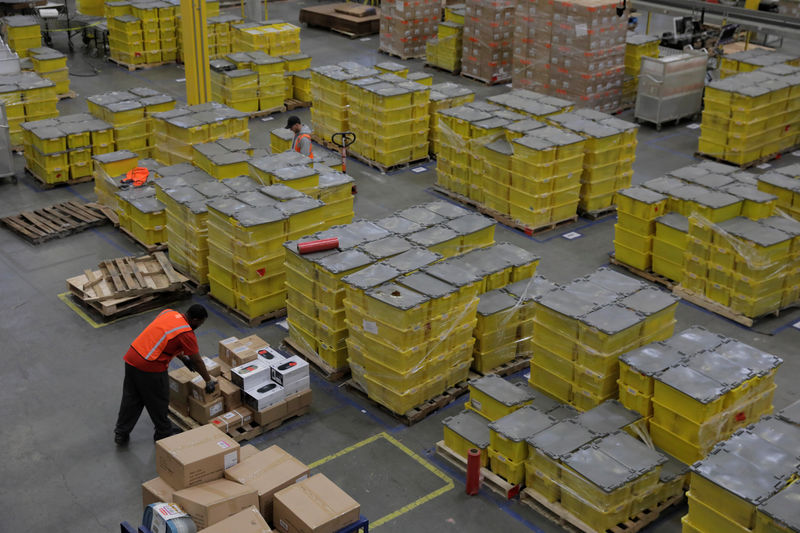This post was originally published on this site
https://i-invdn-com.investing.com/trkd-images/LYNXMPEJ1200W_L.jpg
(Reuters) – Amazon.com Inc (NASDAQ:AMZN), the online retailer long feared to disrupt the grocery sector, believes it has fallen short.
The company has paused expansion of its Fresh supermarkets and cashier-less convenience stores until it finds the right recipe for success, Chief Executive Andy Jassy said on Thursday, in a rare appearance on the company’s quarterly results call.
What the company needs is a distinctive store format that’s doing well financially before embarking on a major expansion, a formula Amazon hopes to find this year, he said.
The remarks show how Amazon, which just a year ago said it would close its bookstores to focus on grocery, has yet to dominate brick-and-mortar retail since its closely watched acquisition of Whole Foods Market in 2017. Amazon has long viewed grocery as a key to unlock more consumer spending.
Rival grocers like Kroger (NYSE:KR) Co and Walmart (NYSE:WMT) Inc remain fearsome competition. Despite Amazon’s large business from packaged food and other goods, it has yet to win significant market share in perishables, Jassy said.
Michael Pachter, an analyst with Wedbush Securities, said Amazon has itself to blame, having drawn consumers to online shopping decades ago.
“Retail is a tough business,” he said. “They are flushing money down a toilet pursuing Amazon Fresh stores” and thinking “they can brand a new concept and capture share from retailers who have been successful for decades.”
Jassy said the future of grocery was both online and offline, or omnichannel.
He said Whole Foods is growing and remains on top for premium, organic grocery, but Amazon’s mass-appeal offering needed work.
The company has a few dozen Amazon Fresh stores so far, Jassy said. It has also experimented with technology that bills shoppers for what they take from a store without having to pass by a cash register.
For the time being, the company has closed some grocery shops and impaired certain assets. It took a $720 million charge from such actions in the fourth quarter, its chief financial officer said.

